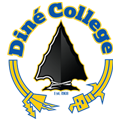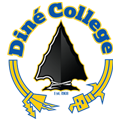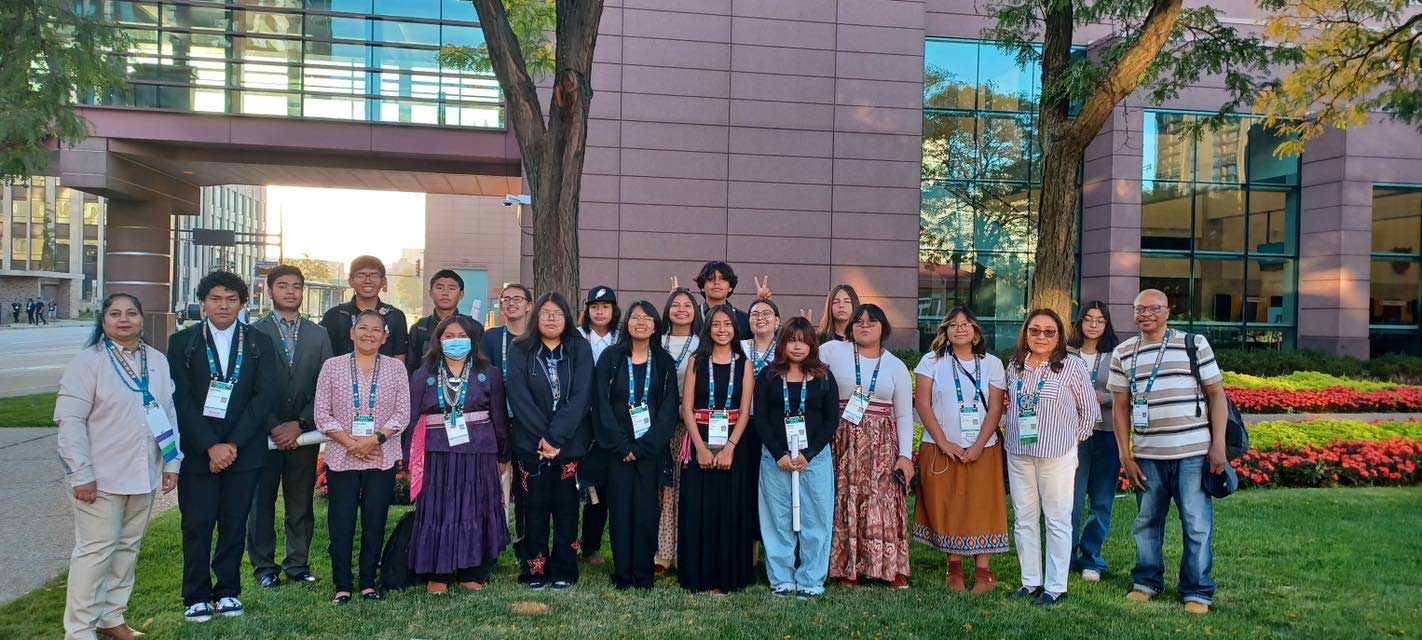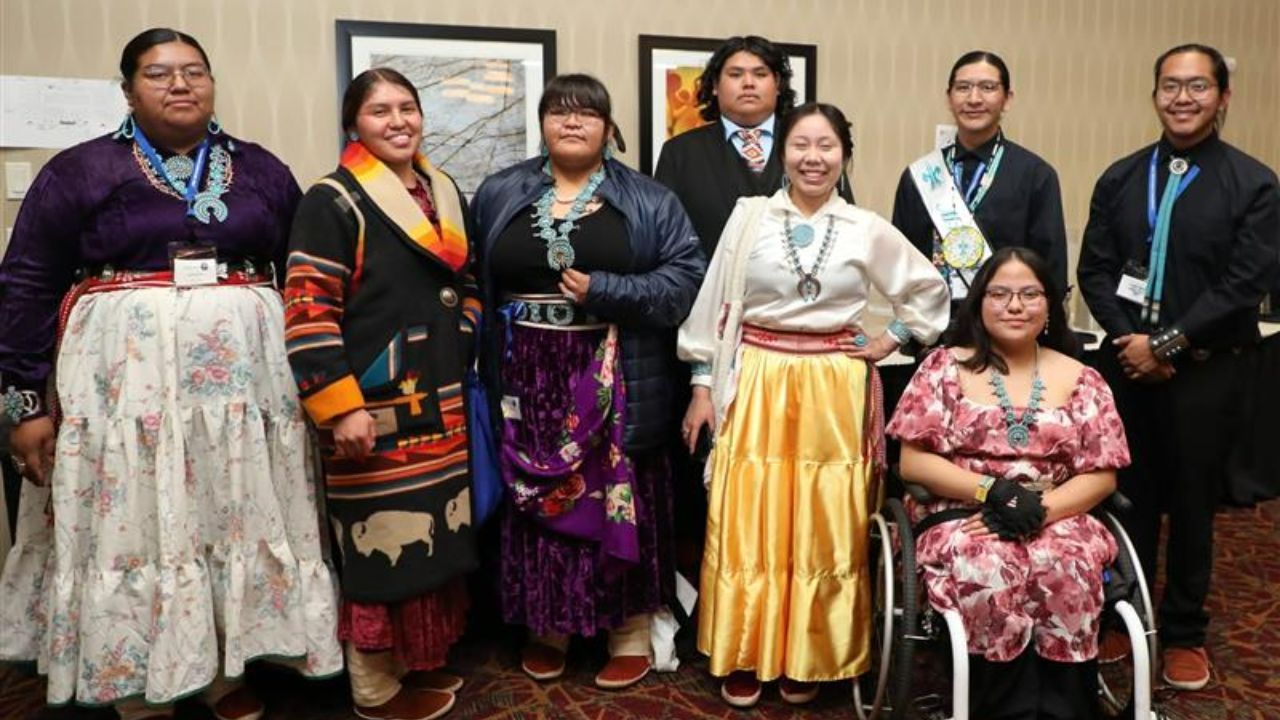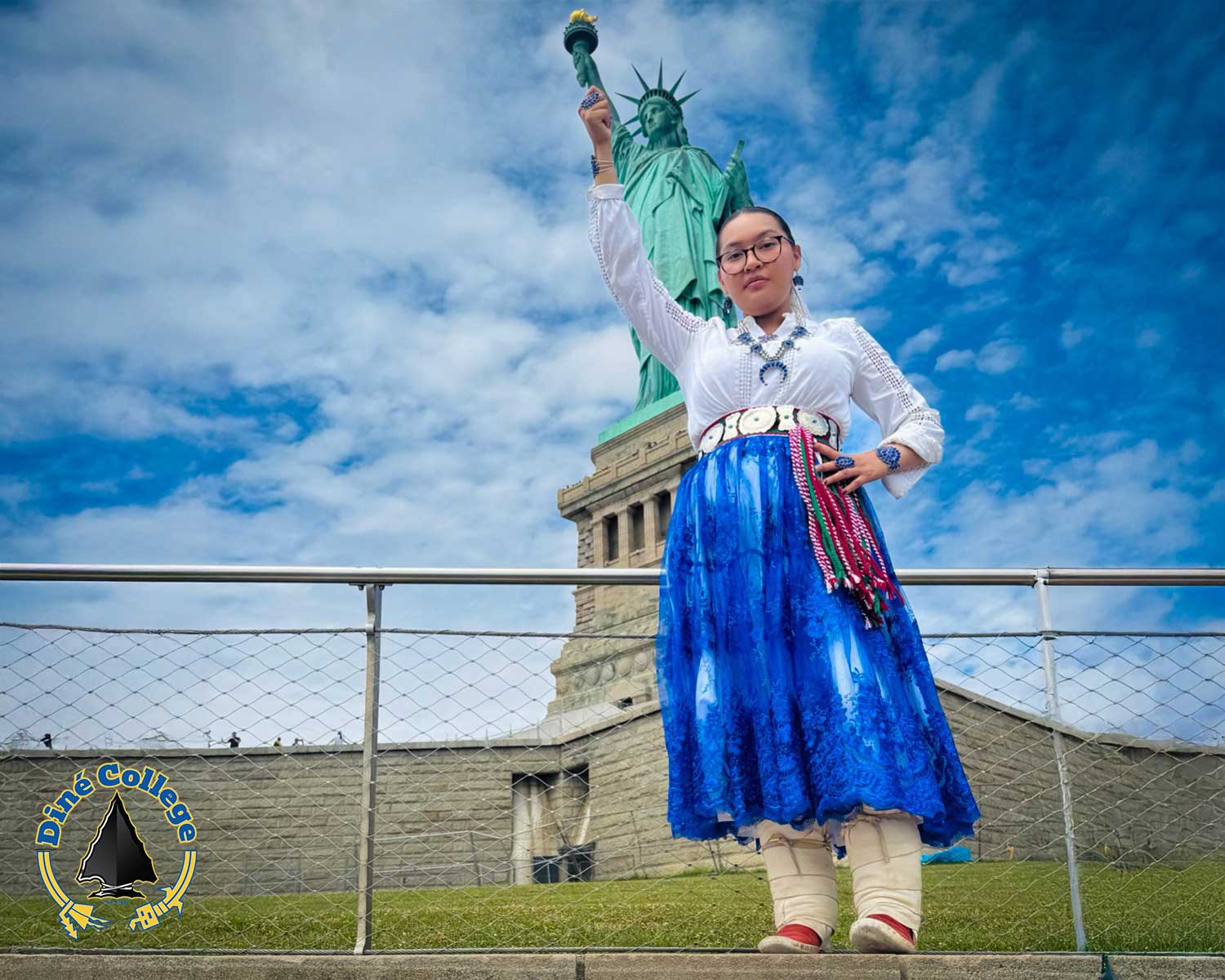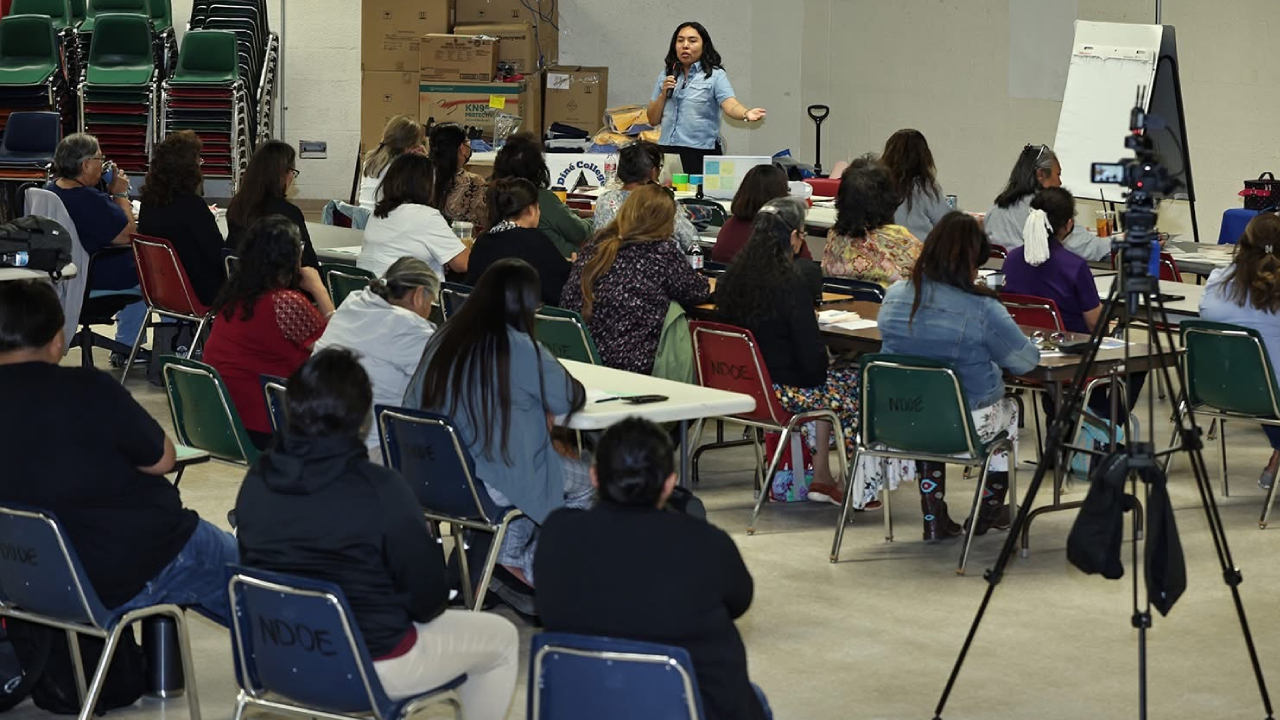Diné College Delegation Presents Research at National Science Conference
Minneapolis, MN., October 7, 2025. A 30-member group from Diné College presented research at the American Indian Science and Engineering Society (AISES) National Conference in Minneapolis, Minnesota, from October 2 to 4. The group, comprising faculty, staff, and students, shared projects that integrated traditional Navajo knowledge with modern science.
The delegation came from various college departments, including the School of STEM and the Land Grant Department. Their participation demonstrated the college’s commitment to science, technology, engineering, and math (STEM) education. Students from junior high to college presented their work.
Presentations covered topics like biomedical research, clean water, and community health. Twenty high school and college interns from the CONVOY Program shared their own research. Their projects included studies on removing invasive species, designing solar-powered homes, and investigating the impact of movies on behavior.
“The Dual Credit and CONVOY programs are creating strong pathways for our youth to engage in STEM learning early,” said Francetta Begay, Director of Diné College’s Dual Credit Program.
Professor Babatunde Ojo, a chemistry faculty member, added, “Our students are demonstrating confidence, creativity, and scientific curiosity that truly represent the future of the Navajo Nation.”
The college also hosted a booth at the conference to showcase its degree programs and research projects. This helped build connections with other universities, tribal groups, and government agencies.
“Ms. Phyllis Begay, Director of the Tuba City Center, added, This is our second consecutive year participating in this national event. By attending, Diné College enhances its visibility and strengthens partnerships with universities, research centers, tribal organizations, and government agencies. These relationships open doors to future research collaborations, funding, and expanded internship opportunities for our STEM, Land Grant, and Dual Credit students.”
A key highlight of the event was the active participation of 20 CONVOY Program interns representing Tuba City High School, Tuba City Junior High School, Greyhills Academy High School, Keyanta High School, and Diné College. These young scholars presented their original research projects in both poster and oral sessions, covering topics such as sustainable methods for removing invasive olive trees, solar-powered designs for energy-efficient traditional Hogan Structures, the impact of movies on human behavior, and the influence of color on the human brain using fruit flies as a model organism.
Among the featured projects, Tori Fulton presented her study on water quality in rural Navajo communities, while Dizhonia Stanley shared findings on Cat Paw Microbiota in diverse environments. These projects were completed under the NIH–NIGMS–SEPA-funded CONVOY Program, led by Dr. Shazia Tabassum Hakim and Dr. Babatunde Ojo.
Additionally, Jessica Begay, Josephine Bitsui, Megan Yazzie, and Kayla Thomas presented neuroscience research focused on brain health and aging. Their work was conducted through the NIH-funded NDEED and DREAMS R25 Research Education Programs, led by Dr. Kathleen Rodgers at the University of Arizona, with ongoing mentorship from Dr. Demetra Skaltsas at the Land-Grant Agricultural Research Lab, who serves as their institutional mentor.
Many CONVOY interns are also participants in the Dual Credit Program, which enables high school students to earn college credits while gaining early exposure to higher education, STEM, and research. Alongside 20 weeks of hands-on training and project development in various STEM disciplines, participants completed their first three-credit-hour Dual Credit course, Introduction to Navajo Traditions and Culture, taught by Mr. Lorenzo Max, Diné Studies faculty member and medicine man. The CONVOY Program continues to serve as a vital bridge connecting local schools to Diné College’s academic and research opportunities.
“This collaboration reflects our commitment to sharing the College’s mission,” said Benita Litson, Director of the Land Grant Office.
Professor Shazia Tabassum Hakim, who leads the CONVOY Program, noted, “Our students and faculty continue to show that Diné College is a leader in integrating Indigenous knowledge with scientific research and education to serve our communities. One of our CONVOY mentor avatars, Deshawn Begay from Arizona State University, who joined us through the Tuba City Chapter House, was recognized as a Sequoyah Fellow 2025, earning lifelong membership in AISES. He serves as an inspiration to other Diné youth. We are proud to support our communities and bring the best opportunities to our students.”
